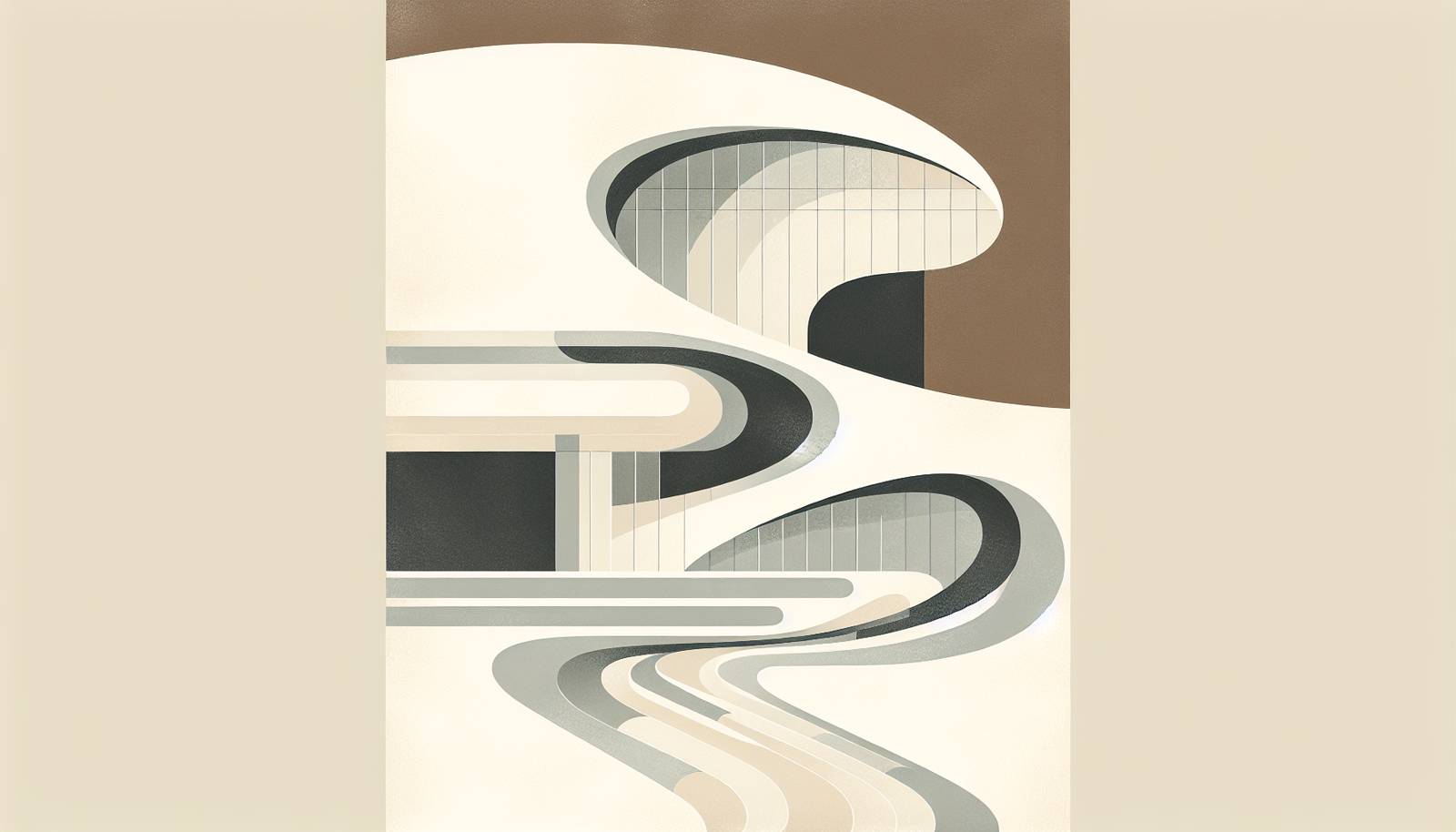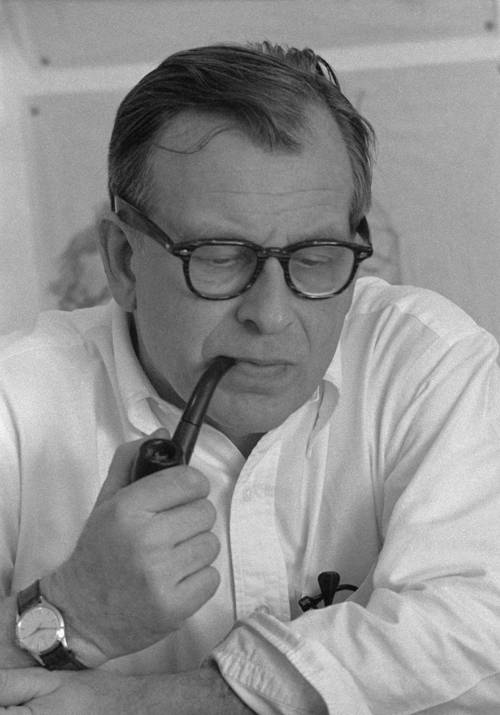
FAQ About Eero Saarinen

Who was Eero Saarinen?
Eero Saarinen was a Finnish-American architect and industrial designer, renowned for his unique and innovative architectural designs. Born on August 20, 1910, in Kirkkonummi, Finland, he became one of the most prominent architects of the 20th century. His works include notable structures such as the Gateway Arch in St. Louis, Missouri, and the TWA Flight Center at John F. Kennedy International Airport in New York City.

What are some of Eero Saarinen's most famous works?
Eero Saarinen is most famous for his architectural masterpieces like the Gateway Arch in St. Louis, Missouri, which is a landmark symbolizing the westward expansion of the United States. He also designed the TWA Flight Center at John F. Kennedy International Airport, an iconic example of mid-century modern architecture. Other significant works include the Dulles International Airport terminal and the General Motors Technical Center.

What impact did Eero Saarinen have on modern architecture?
Eero Saarinen had a profound impact on modern architecture with his experimental and futuristic designs. By embracing new materials and construction techniques, Saarinen pushed the boundaries of conventional architectural practice. His unique approach to form and function can be seen in his use of swooping curves and innovative building shells that helped shape the direction of modernist architecture.

Where did Eero Saarinen study architecture?
Eero Saarinen studied architecture at Yale University in New Haven, Connecticut, where he graduated in 1934. Afterward, he traveled to Europe to further his education and gain diverse architectural insights before returning to the United States to work alongside his father, Eliel Saarinen, at the Cranbrook Academy of Art.

What style of architecture is Eero Saarinen known for?
Eero Saarinen is known for his modernist approach to architecture, characterized by bold, sweeping curves, and innovative use of materials. His designs often incorporate sculptural elements and futuristic aesthetics, blending structural ingenuity with practical function. His ability to blend form and function has made his works enduring icons of mid-20th-century architecture.

How did Eero Saarinen contribute to industrial design?
In addition to his architectural achievements, Eero Saarinen made significant contributions to industrial design. He is well-known for his collaboration with Charles Eames on designing award-winning furniture, such as the iconic 'Tulip Chair' that embodies modernist principles with clean lines and distinctive forms. His designs have had a lasting influence on modern interior design.

What was Eero Saarinen's relationship with his father, Eliel Saarinen?
Eero Saarinen had a close and collaborative relationship with his father, Eliel Saarinen, who was also an accomplished architect. The two worked together at the Cranbrook Academy of Art, where Eliel was the director. Eero often benefitted from Eliel's mentorship and guidance, which influenced his development as an architect and designer.

What are some unique architectural features of the Gateway Arch, designed by Eero Saarinen?
The Gateway Arch, designed by Eero Saarinen, is renowned for its unique architectural features. This stainless steel monument stands at 630 feet, making it the tallest arch in the world. Its iconic tall curve, known as a catenary curve, was designed to symbolize the gateway to the West. The structure's sleek and futuristic form exemplifies Saarinen's innovative architectural vision.

What was the design philosophy of Eero Saarinen?
Eero Saarinen's design philosophy was centered around creating innovative forms that served both functional and aesthetic purposes. He aspired to redefine American architecture by infusing his buildings with unique and expressive structural elements. His designs often focused on the relationships between space, form, and function, resulting in contemporary and visionary architecture.

When did Eero Saarinen pass away?
Eero Saarinen passed away on September 1, 1961, at the age of 51. Despite his relatively short career, his legacy continues to influence architects and designers worldwide through his groundbreaking and visionary architectural works.

How did Eero Saarinen's work influence future architects?
Eero Saarinen's work has significantly influenced future generations of architects by demonstrating the potential of structural innovation and the integration of advanced materials into design. His emphasis on functional yet aesthetically striking buildings paved the way for more experimental designs in architecture, encouraging architects to explore new possibilities beyond traditional forms.

Which airports feature terminal buildings designed by Eero Saarinen?
Eero Saarinen designed several notable airport terminal buildings, including the TWA Flight Center at John F. Kennedy International Airport in New York City, known for its bird-like form and futuristic design. He also designed the main terminal at Dulles International Airport near Washington, D.C., with its sweeping roofline and flexible interior space accommodations.

What was the inspiration behind the TWA Flight Center designed by Eero Saarinen?
The TWA Flight Center, designed by Eero Saarinen, was inspired by the notion of flight itself. Saarinen aimed to capture the spirit and excitement of air travel through the terminal's dynamic and wing-like structures. Its unique design emphasized fluidity and motion, symbolizing the technological advancements and modernity of the aviation industry during that era.

Did Eero Saarinen work on any collaborations with other famous architects or designers?
Yes, Eero Saarinen collaborated with several renowned architects and designers during his career. One notable collaboration was with Charles Eames, with whom he worked on designing innovative furniture pieces like the 'Organic Chair' and the famous 'Tulip Chair.' His ability to collaborate successfully was a hallmark of his versatility as a designer.

Why is the shape of the Gateway Arch significant?
The shape of the Gateway Arch is significant because it represents a perfect catenary curve, which is a natural form that is both structurally efficient and aesthetically pleasing. Designed by Eero Saarinen, the Arch's shape symbolizes the pioneering spirit and the westward expansion of the United States while showcasing the potential of modern engineering and architecture.

What materials did Eero Saarinen commonly use in his architectural designs?
Eero Saarinen often used innovative materials such as steel, concrete, and glass in his architectural designs. He leveraged these materials to create bold and sweeping structural forms that pushed the boundaries of what was possible in construction. Saarinen's mastery in utilizing these materials helped to manifest his groundbreaking architectural visions.

How did Eero Saarinen's upbringing influence his work?
Eero Saarinen's upbringing had a substantial influence on his work. Being raised by a family deeply rooted in architectural and artistic pursuits, he was exposed to design early on. His father, Eliel Saarinen, was a respected architect, which allowed Eero to learn from and work closely alongside an experienced mentor, shaping his design sensibilities and architectural creativity.

What awards or recognitions did Eero Saarinen receive for his work?
Eero Saarinen received several prestigious awards and recognitions during his career. His work on the Jefferson National Expansion Memorial, including the Gateway Arch, earned him the American Institute of Architects (AIA) Gold Medal posthumously in 1962. He was also recognized for the innovative design of various airports and his contributions to furniture design with Charles Eames.

Was Eero Saarinen involved in teaching architecture?
While Eero Saarinen himself did not teach architecture regularly, his work and designs have served as critical educational tools for many architecture courses across the world. His innovative approaches and philosophies continue to be analyzed and discussed in architectural education, influencing countless students and professionals in the field.

What legacy did Eero Saarinen leave in the field of architecture?
Eero Saarinen left a significant legacy in architecture characterized by his innovative designs and his willingness to explore new architectural forms. He challenged the conventions of his time and created designs that were ahead of their era, inspiring future architects to think creatively and boldly. His landmarks remain influential icons, emblematic of the mid-century modern architectural movement.
